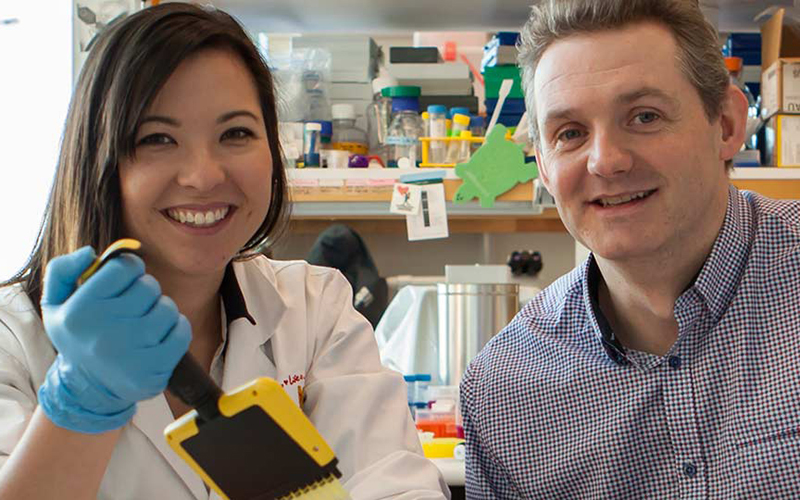Search
Research
International experience in the development of patient-derived xenograft models of diffuse intrinsic pontine gliomaThis multi-center study provides valuable information on the success rate of establishing patient-derived pre-clinical models of diffuse intrinsic pontine glioma
Research
Most clinical anti-EGFR antibodies do not neutralize both wtEGFR and EGFRvIII activation in gliomaWe discovered a previously unknown major resistance mechanism in glioma in that most EGFR domain III-targeting antibodies do not neutralize EGFRvIII
Research
Tissue resident memory T cells: putting cancer cells to sleep and a target for therapyTissue resident memory T cells are cancer killing immune cells that have emerged as key players in immune-mediated control of solid cancers, as well as being markers of prognosis and predictors of response to immunotherapy.
Research
Developing and characterising juvenile models of aggressive paediatric brain cancers for the evaluation of novel immunotherapies.While profound treatment responses have been realised using immunotherapy for some cancer types, this is yet to be seen for paediatric brain cancer patients.

News & Events
Landmark research hopes to increase survival rates for aggressive childhood cancerA new combination of drugs could help to increase survival rates with fewer side effects for some children with one of the most aggressive forms of childhood brain cancer.

People
Professor Nick GottardoHead of Paediatric and Adolescent Oncology and Haematology, Perth Children’s Hospital; Co-head, Brain Tumour Research Program, The Kids Research Institute Australia
Research
Integrated analysis of miRNA and mRNA expression in childhood MedulloblastomaMedulloblastoma (MB) is the most common malignant brain tumor in children and a leading cause of cancer-related mortality and morbidity.
Research
Integrated Analysis of miRNA and mRNA Expression in Childhood Medulloblastoma Compared with Neural Stem CellsMedulloblastoma (MB) is the most common malignant brain tumor in children and a leading cause of cancer-related mortality and morbidity.
Research
Exercise training improves vascular function and secondary health measures in survivors of pediatric oncology related cerebral insultThis study demonstrates that exercise is achievable and has positive effects on vascular function, submaximal fitness, local strength and physical activity in a population of AYA survivors of pediatric oncology related cerebral insult
Research
Activation of ERBB4 in Glioblastoma Can Contribute to Increased Tumorigenicity and Influence Therapeutic ResponseThe functional effects of increased ERBB4 activation identify ERBB4 as a potential prognostic and therapeutic target
